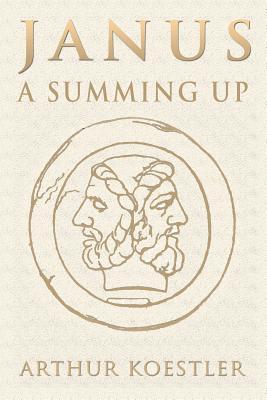The most adventourous, polymathic - and readable - scientific populariser of the age offers in Janus a summing up of a quarter of a century's study and speculations on the life sciences and their philosophic implications. Koestler has an interesting theme to propose. It is this; the human brain has developed a terrible biological flaw, such that it is working now against the survival of the race. Something has "snapped" inside the brain. It is no longer necessarily a function which will lead us to a better world, but something demonic, possessed, perhaps even evil.
The anguished humanity of Koestler's concepts and the lucid energy of his style comman respect. Here is one of the major political "experiencers" an dmost widely informed spirits of the age turning to the crux of human survival on a ravaged planet. The title of the book tells not only of a central allegory of division in the human species. It stands for the rare tension on Koestler's discourses: between desolation and zest, between darkness and noon.
